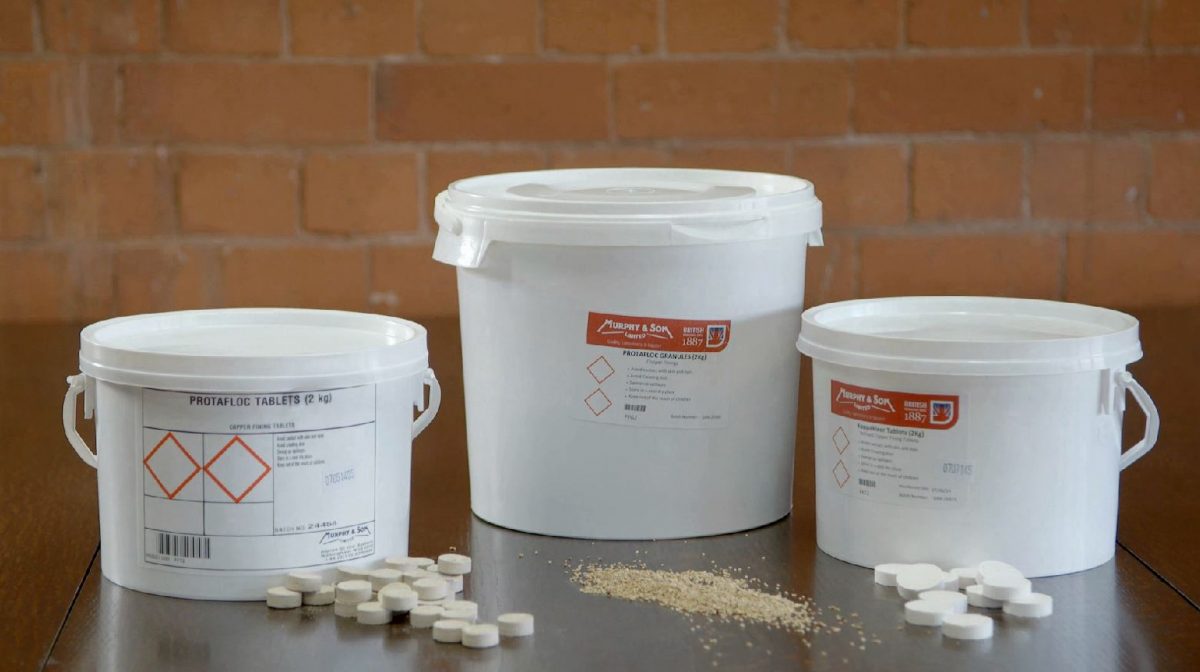Our kettle finings (carrageenan) products are added to the wort in the kettle to enhance protein removal as the wort cools.
Benefits
- Natural product which removes substantial quantities of haze-forming material without affecting head retention
- Produces brighter worts; reducing the amount of finings required later
- Increases rate of fermentation and attenuation
- Increases filter runs
- Prolongs shelf life in small pack beers
- Reduces process time
- Is a processing aid not an additive so doesn’t require label declaration
- Reduced tank losses
- 5-10% more efficient than competitive products
- Tabletted for easy use
The active ingredient is a polysaccharide called carrageenan, which is derived from seaweed. The following photos are from Nick Brading our Export Manager who paid his annual visit to the Philippines to audit our suppliers.
Carrageenan in solution is negatively charged, owing to the sulphate groups along the polysaccharide backbone. It is these charged sites which interact with wort proteins.
In solution at temperatures above 65°C, the carrageenan has a random coil structure. But, as the wort cools the carrageenan takes a much more compact and ordered helical structure, it is this which is thought to drag the protein particles together to form aggregates. The aggregates, having a larger particle radius, settle faster.
Kettle finings are added in the kettle to allow the carrageenan to dissolve. As the wort cools the wort proteins react with carrageenan and settle in the whirlpool or at a cold break during fermentation, to be removed along with the excess yeast.
The removal of particles and protein from wort has been demonstrated by microscopic examination of pre-filtered beers and protein assay. As the levels of kettle finings increase, the fine particle counts in each of the size bands decrease. It should be noted that the particles below 2 microns are mostly responsible for blinding filter pores.
- Kettle finings vary in when they should be added to the kettle, for example Protafloc should be added 10 minutes before the end of the boil, whereas Koppakleer is added at the end of the boil.
- The reaction between wort proteins and carageenan is also pH dependent and occurs at an optimum pH of 5.3, The reaction does not occur below pH 4.4, so there will be little benefit from kettle finings at this pH or below.
Since Kettle Finings remove both particulate and soluble protein, and soluble protein is a component of chill haze, it is unsurprising that the colloidal stability of kettle fined beers are enhanced.
Our range of kettle finings products are Koppakleer and Protafloc please contact us to discuss which kettle finings are suitable for you.
